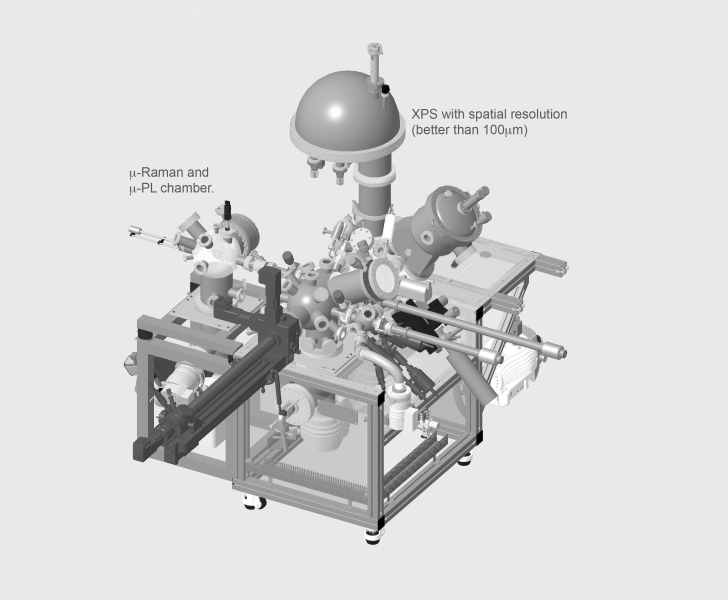Spectro-Microscopy Laboratory (SMART)
One of the main specific goals of the ARC Spectro-Microscopy laboratory SMART is the investigation of mirror coating prototypes developed in the context of the LIGO-Virgo Collaboration, and to propose technological solutions and appropriate treatments for third-generation detectors. Being at the frontier of the Materials Science, these studies will be carried out in an extremely clean contaminant-free environment, in ultra-high-vacuum (UHV), and will make use of sub-micrometre spatial resolution and low temperatures.
The ARC Spectro-Microscopy laboratory has been designed with the purpose of defining a strategy to characterize extended surfaces by means of optical, structural and stoichiometric spatial maps at the sub-micro-scale. This is possible by integrating, in the same UHV apparatus, micro-Photoluminescence (μPL) and Micro Raman Spectroscopy with hundred-nanometre spatial resolution, and X-Ray Photoelectron Spectroscopy (XPS) with tens of μm spatial resolution. All experimental chambers (with base pressure in the low 10-10 mbar range) will be UHV-connected and can be operated at cryogenic temperatures.

The preparation chamber will host a Low Energy Electron Diffraction (LEED) apparatus, low-medium energy ion gun, electron gun, a Hydrogen source and several evaporators for physical vapour deposition (PVD), gas-line for chemical vapour deposition (CVD). In this way, the thin films can undergo physical-chemical and thermal treatments in-situ. A specific attention will be devoted to the study of defects related to unpaired bounds (as possible origin of elastic dissipation) and to new materials, beyond the oxides, for the coating research on third-generation interferometers.
Beyond the specific aims on the materials relevant to the mirror coatings, this world-unique apparatus for controlled all-in-UHV optical and electron spectroscopy analysis will be available for the fundamental study of low-dimensional advanced systems, materials and interfaces, among which graphene-functionalised materials for relic neutrino and dark matter detectors (Ptolemy). The laboratory will be operative in Spring 2021.
For further information, please contact:
